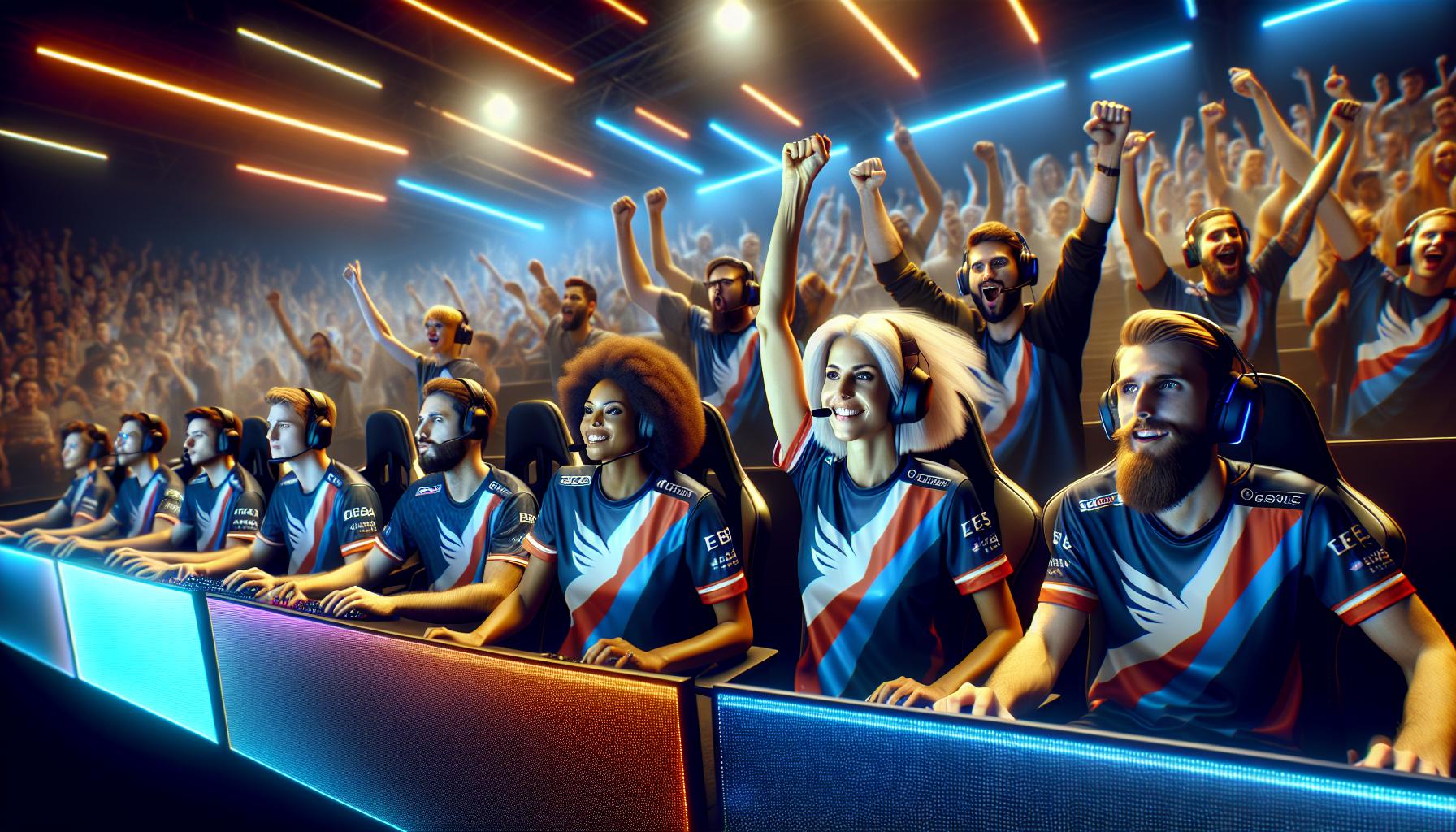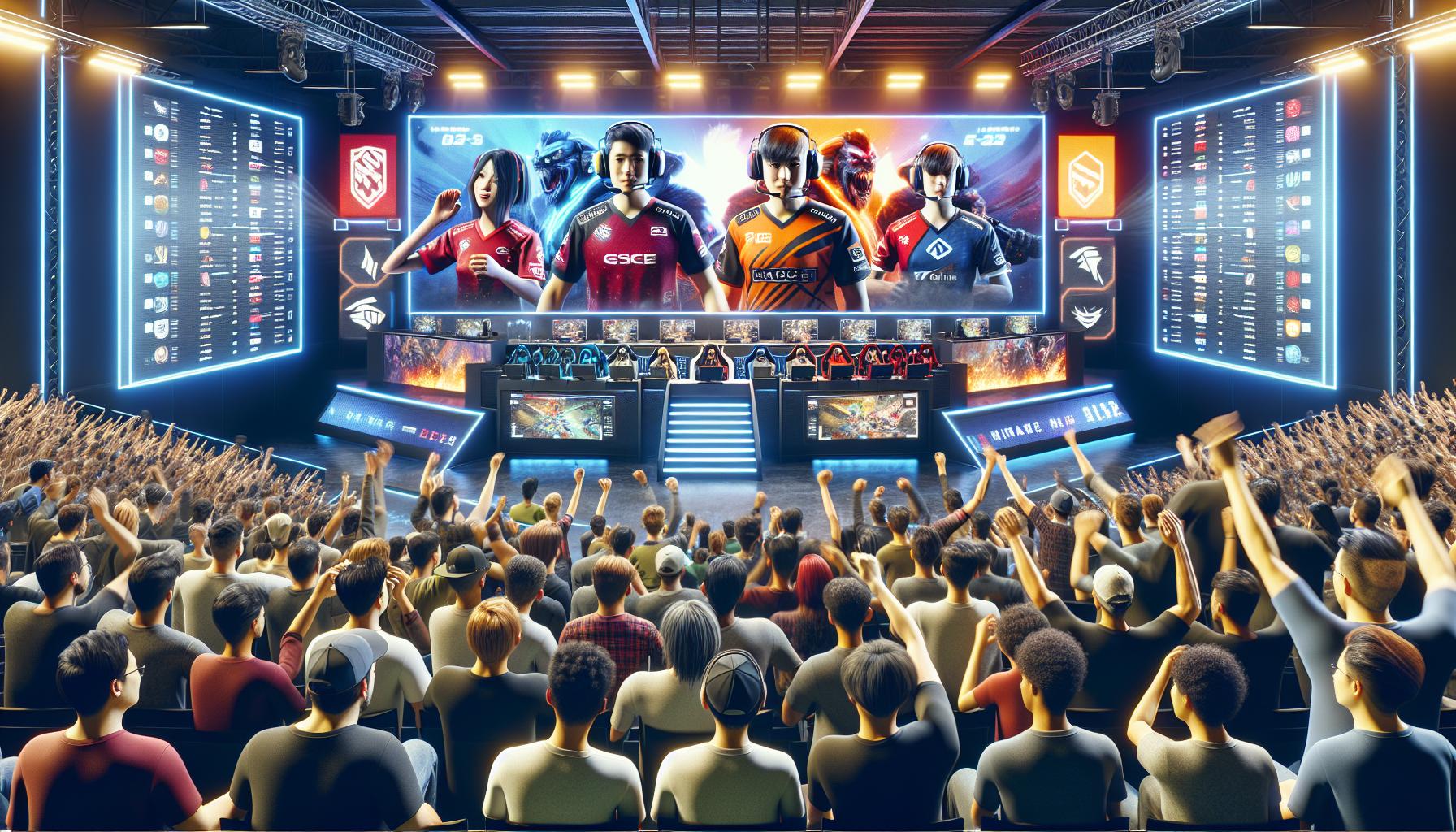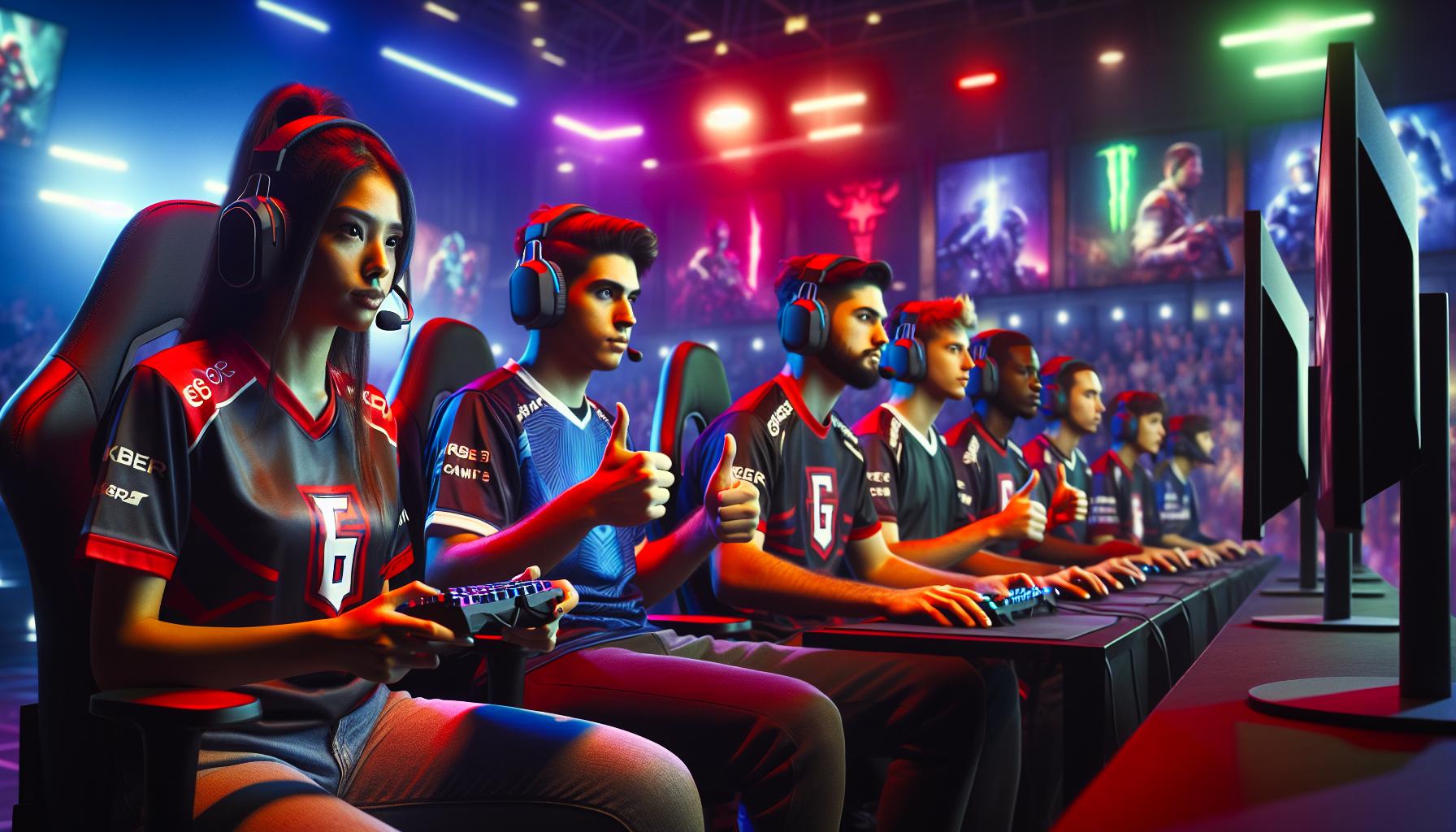
In a world where playing video games can earn you fame and fortune, esports gaming companies are leading the charge. These powerhouses aren’t just about pixels and high scores; they’re crafting a billion-dollar industry that’s as thrilling as the games themselves. From organizing epic tournaments to developing groundbreaking titles, they’re turning casual gamers into rock stars faster than you can say “level up.”
Esports Gaming Companies
Esports gaming companies play a pivotal role in the booming gaming industry. These firms produce high-quality video games that attract millions of players and fans worldwide. Companies like Riot Games and Blizzard Entertainment lead the way, with titles such as League of Legends and Overwatch contributing significantly to the esports phenomenon.
Additionally, these organizations organize and host large-scale tournaments that draw global audiences. Events such as The International, hosted by Valve, showcase top-tier talent and offer millions in prize money. Such competitions transform professional gamers into household names, elevating their status to that of traditional sports stars.
Moreover, many esports companies invest in infrastructure, such as dedicated gaming arenas and training facilities. This investment enhances player development and boosts the overall esports ecosystem. Teams sponsored by major companies, including Team Liquid and Cloud9, exemplify the trend of integrating esports into mainstream culture.
Sponsorships also play an essential part in the success of esports gaming companies. Brands ranging from Intel to Coca-Cola seek partnerships, recognizing the vast reach of esports demographics. These collaborations foster growth and create revenue streams that benefit both the companies and the affiliated players.
Technological advancements further fuel the growth of these companies. The rise of streaming platforms such as Twitch and YouTube Gaming enables real-time audience engagement, making it easier for fans to connect with their favorite players and teams. This immediate interaction enhances the overall experience, contributing to increased viewership and participation.
Esports gaming companies are reshaping the gaming landscape. Their contributions span game development, tournament organization, and community engagement, solidifying their importance in this rapidly evolving industry.
Major Players in the Esports Industry

The esports industry features a range of influential companies shaping its growth and popularity. This section highlights prominent organizations and independent firms making significant contributions.
Leading Esports Organizations
Leading esports organizations include teams and franchises with large followings. Team Liquid and FaZe Clan exemplify successful entities known for their professional players competing in various titles. These organizations often secure lucrative sponsorships, amplifying their brand presence in the competitive gaming landscape. They invest heavily in player development, ensuring top-tier talent remains competitive at major tournaments. In addition, many host events that bring fans and players together, fostering a vibrant community.
Independent Esports Companies
Independent esports companies play a pivotal role in enhancing the industry’s diversity. Companies like ESL and DreamHack organize tournaments that attract global participation. These independent firms emphasize inclusivity, allowing smaller teams to compete for recognition. They focus on technological innovations that improve viewer experiences and tournament engagement. While independent, their impact on the esports landscape remains profound, as their events often serve as stepping stones for emerging talent.
The Role of Sponsorships and Partnerships

Sponsorships and partnerships serve as driving forces behind the growth of esports gaming companies. Major brands, including Intel and Coca-Cola, invest significantly in esports, providing essential financial support that allows companies to expand. Gamers benefit from these sponsorships by receiving funding for tournaments and access to state-of-the-art training facilities.
Partnerships with well-known streaming platforms, such as Twitch and YouTube Gaming, enhance visibility for esports events. These collaborations increase audience reach and engagement, allowing fans to connect with their favorite gamers in real time. High viewership levels translate to higher advertising revenue, supporting the industry’s expansion.
Professional teams, like Team Liquid and FaZe Clan, attract substantial sponsorships due to their success in competitions. These organizations leverage partnerships to enhance brand presence and create additional revenue streams. Unique branding opportunities, such as in-game advertising and merchandise collaborations, arise from successful partnerships.
Investment in new technologies and platforms plays a crucial role in attracting sponsorships. Companies that innovate maintain a competitive edge in the rapidly evolving esports landscape. Desiring to connect with younger audiences, brands see value in aligning themselves with popular esports organizations.
Furthermore, partnerships create community-focused initiatives that promote inclusivity and diversity in gaming. Events organized by independent firms, like ESL and DreamHack, often showcase these values, drawing in global participation. By prioritizing both player development and community engagement, esports gaming companies continue to thrive.
Trends Shaping Esports Gaming Companies

Esports gaming companies are experiencing significant transformations, driven by various trends in the industry. These shifts create opportunities for growth and innovation.
Growth of Mobile Gaming
Mobile gaming continues to rise rapidly, attracting a larger audience. Many esports companies now focus on developing mobile-friendly games to meet this demand. Titles like PUBG Mobile and Call of Duty: Mobile exemplify the successful crossover from traditional gaming to mobile platforms. Increased accessibility empowers casual gamers, fostering a competitive environment that fuels esports participation. The convenience of gaming on smartphones enables players to join tournaments from anywhere, further expanding the esports community. In 2023, mobile gaming contributed nearly 50% of total gaming revenue, underscoring its importance in shaping company strategies.
Emerging Technologies
Emerging technologies are revolutionizing the esports landscape. Innovations in virtual reality and augmented reality enhance player experiences, offering immersive gameplay that captivates audiences. Live streaming platforms leverage advanced analytics to engage viewers in real-time, maximizing interaction and viewership. Artificial intelligence is also being used to refine game mechanics and match simulations, improving competitive play quality. Companies that adopt these technologies position themselves as leaders, attracting investment and sponsorships. As consumer interest grows, esports firms prioritize integrating new tech to stay ahead, ensuring they remain relevant in an ever-evolving industry.
Challenges Facing Esports Gaming Companies
Esports gaming companies encounter various challenges that impact their growth and sustainability. Addressing these issues is crucial for navigating an evolving landscape.
Regulatory Issues
Regulatory hurdles pose significant challenges for esports gaming companies. Compliance with local laws varies across countries, leading to potential obstacles in tournament organization and game distribution. Age restrictions for game content create complexities as well, especially for companies targeting younger audiences. In some regions, gambling regulations affect sponsorships and betting operations tied to esports events. Adapting to rapidly changing regulations demands constant vigilance from these companies to ensure they remain compliant while maximizing opportunities.
Market Competition
Intense competition characterizes the esports gaming market. Major players, such as Riot Games and Blizzard Entertainment, set high standards with popular titles and massive tournament events. Smaller companies strive to innovate while building their brand identity. As mobile gaming surges, the influx of new developers into the market heightens competition even further. Companies face pressure to deliver engaging experiences and maintain player loyalty to stay relevant. Navigating this competitive landscape requires strategic planning and adaptability to succeed amid numerous rivals.
Forefront of a Dynamic And Rapidly Evolving Industry
Esports gaming companies are at the forefront of a dynamic and rapidly evolving industry. Their commitment to innovation and community engagement has transformed casual gaming into a global phenomenon. As they continue to invest in player development and cutting-edge technology, these companies are not just shaping the future of gaming but also redefining entertainment as a whole.
The synergy between major players and independent firms fosters a diverse ecosystem that thrives on competition and creativity. With substantial sponsorships and partnerships driving growth, esports is poised for even greater expansion. The ongoing evolution of mobile gaming and emerging technologies will further enhance the experience for players and fans alike, solidifying esports’ place in mainstream culture.
